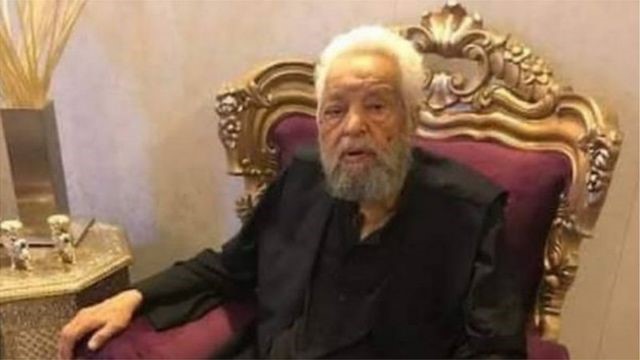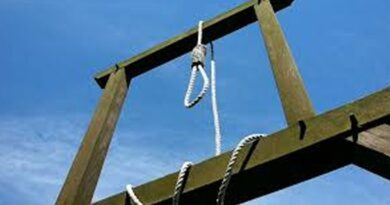Pakistan’s ‘gold king’ who ends India’s dominance in gold smuggling
In April 1958, a passenger going to Lahore was stopped at the Karachi airport, and three thousand and one hundred weighing gold was recovered from that passenger. When the Karachi customs officials told in the press handout that they had confiscated two thousand tola gold, the passenger in police custody corrected their mistake and said that it was not two thousand but three thousand one hundred tola gold.
The man was soon released from prison and only five months later, he appeared in a border village near Kasur. From there, he had to leave 45 gold bricks to escape from Amritsar police.
Six years later, this man once again surfaced when the Delhi Police tried to arrest him. At that time he was making a gold deal with a businessman of Moti Bazaar in Chandni Chowk.
The man managed to escape from the police, but one of his accomplices was caught and the police also recovered 44 gold bricks from him.
In 1977, a newspaper published from Lahore wrote about the man as “a golden fugitive, an extraordinary man, disguised and a fox-smart”.
The man’s name was included in the list of Pakistan and Interpol and he often traveled to Delhi, Dubai and London. And that man was none other than Seth Abid.
Seth Abid, who died at the age of 85, is also known as the ‘Gold King’ in Pakistan. He is counted among the richest people whose wealth depended on gold smuggling.
In the smuggling business, whoever wants to become the emperor of gold has to establish his network across the border. Relations are also to be established with the country’s elite and government officials. In addition, to establish its place in society, a comprehensive system of goodwill will also have to be established on moral grounds.
Seth Abid’s rise coincided with the formation of the border between India and Pakistan.
He was born and brought up in the border region of Kasur, where his clan people traded leather from Calcutta before the partition of India.
Seth Abid moved to Karachi in 1950, when his father started a gold and silver business at the Sarafa Bazar in Karachi. After meeting some fishermen who smuggled gold from Dubai to Karachi, Seth Abid stepped into the world of gold smuggling.
By the late 1950s, he had established a monopoly on gold smuggling in Pakistan, along with Qasim Bhatti, a fisherman.
Seth Abid is counted among smugglers who were very important in the context of Pakistan smuggling and smuggling economy.
His strength was in Karachi port, Punjab border, government administration and political corridors; he could do many things on the other side of the border and beyond.
With contacts in London, Delhi and Dubai, Seth Abid ended India’s monopoly on gold smuggling from 1950 to 1980.
Network to london
By the late 1950s, Seth Abid had acquired all these capabilities. When his smuggling network attracted the attention of agents in London, Delhi and Karachi, the network spread to the Punjab border between India and Pakistan.
Initially, this network was limited to only close relatives. His brother, Haji Ashraf, who could speak Arabic fluently, lived in Dubai. His son-in-law, Ghulam Sarwar often visited Delhi and met gold smuggler Harbans Lal.
Seth Abid’s name first appeared in the Indian press at that time. When the Times of India reported in 1963 that Pakistan’s ‘Gold King’ had a ‘connection’ in India and his brother-in-law was arrested in Delhi with 44 gold bricks.
Charles Maloney, who worked for British Airways, was named Seth Abid’s “facilitator” in Britain. Seth Abid also used to go on Haj every year and at the same time his relations with Arab Sheikh operators were improving.
When his smuggling business expanded, he gave gold smuggling franchises to some agents living in villages along the border areas of Punjab. They mainly consisted of people from Gharki Dayal and Awan communities.
Seth Abid had dozens of rivals. But no one had the same skills, connections and capital as them. Unlike many of his rivals, Seth was never charged during his long career, though several FIRs were filed against him.
Government protection
In the 1950s and 1960s, Seth Abid’s smuggling business was flourishing worldwide. In this, sometimes they would get the protection of the government. Due to investment and property in Lahore, Karachi, Dubai and London, he was included in Pakistan’s richest people.
In the 1970s, Seth Abid’s extensive smuggling operations also faced some hurdles in Zulfiqar Ali Bhutto’s government and some of his assets were seized.
In 1974, something happened that nobody thought of. A large police raid at the residence of Seth Abid in Lahore city found Pakistani currency worth about Rs 1.25 crore. With this, gold worth 40 lakhs and Swiss watches worth 20 lakhs were also confiscated. In this raid, the Lahore police also took three carts and a dozen horses in their possession which were used to keep and transport illegal goods.
The newspapers gave the title of this news like this: ‘The biggest case of smuggling in the history of Pakistan’ and ‘Gold King of Pakistan’, Seth Abid was accused of being involved in smuggling activities globally.
Prime Minister Bhutto set up a special tribunal for ‘Seth Abid International Trafficking Case’. The tribunal recorded the statements of dozens of witnesses, but Seth Abid did not appear before the tribunal despite several warnings.
The issue of Seth’s arrest became not only a part of the daily dialogue of Pakistanis, but also a test case of ‘state writ’ for the Bhutto government.
‘Most Wanted’ in Pakistan
The largest operation in the country’s history was launched to search for the ‘most wanted’ person in Pakistan. In which guerrilla teams of Pakistan Army, Police, Rangers and Naval Guard were formed.
Seth Abid’s house was also raided in Karachi. Large quantities of foreign exchange and gold bricks were recovered from there. In 1977, when the Karachi Coast Guard came to know that Seth Abid was visiting his ‘girlfriend’ in North Nazimabad, he was also raided, but before that Seth Abid had fled from there.
In September 1977, Seth Abid surrendered “voluntarily” to the military government of Zia on his own and negotiated for the return of his confiscated property.
In December that year, the military government press reported that Seth had given a major grant of Rs one lakh 51 thousand to Lt Gen Jahanzeb Arbab for the construction project of Jinnah Post Graduate Medical Center Hospital (JPMC) and the barn ward of Abbasi Shaheed Hospital. .
Seth was no longer a commercial criminal, but had become a staunch “Desh Bhakta”, who was generously donating for the good of the country and society.
His fame increased when his name also appeared in the country’s ‘nuclear program’.
The ‘Seth Abid International Smuggling Case’ was debated in the Parliament of Pakistan in 1985-86 and after this the Special Committee (SCNA) of the National Assembly headed by Chaudhary Nisar Ali took up the responsibility of the case.
In 1986, the Pakistan Central Board of Revenue gave permission to return three thousand and one hundred pieces of gold, which was seized by the Customs from Seth Abid at Karachi Airport in 1958.
Social welfare work
Historians have been critical of Eric Hobbs Bom’s term “social robber” since that time. When he argued that in the history of crime, some people can become civil heroes even more than the status of a criminal.
In the context of Pakistan, Seth Abid is widely known as a man who helped to develop Pakistan’s “nuclear program”, changing the identity of a smuggler as a legend.
In addition to setting up humanitarian organizations such as the Hamza Foundation, which works for deaf and dumb children, Seth Abid provided financial support to many welfare institutions, including the Shaukat Khanum Cancer Hospital in Lahore.
Although Seth avoided publicity throughout his life, he still gained fame. His name became famous at that time at the national level, when he bought a five lakh bat for his son during the auction in a TV show. This bat belonged to Javed Miandad, which he used in the innings of Sharjah.
In later life, newspaper headlines were not made on his criminal activities. Rather, he once again made headlines in the Air Line Housing Society in Lahore, due to the murder of his son Seth Hafiz Ayaz Ahmed.
In Pakistan, no one illegally deposited money like Seth Abid in the early part of the country’s history.
During his illicit trading career, he had several roles: smuggler, gold trader, stock market exchanger, philanthropist and above all, a very big name in real estate.
Owner of multiple properties
By the 1990s, he emerged as the most resource-rich property developer in the city, having a large number of properties in various parts of Lahore.
He also had a number of properties in Karachi and after being named in Panama Lake, he transferred his assets to the British Virgin Islands.
There are many stories about his exploits in the world of smuggling. Newspapers and social media still portray Seth Abid as a romantic and talk about his escape and glamorous life.
When newspapers introduced him as the ‘infamous Pakistani Gold King smuggler’, Seth protested against it. And presented themselves as those who made gold accessible to the general public.
Seth Abid told the editor of a Lahore newspaper: ‘Why am I called the infamous gold smuggler? I am providing cheap gold for the weddings of my sister and daughters. I am doing better service for society and country. Instead of getting praise and recognition, I got notoriety.
Seth Abid has now died. But his personality can survive in many forms and meanings in the coming days.




